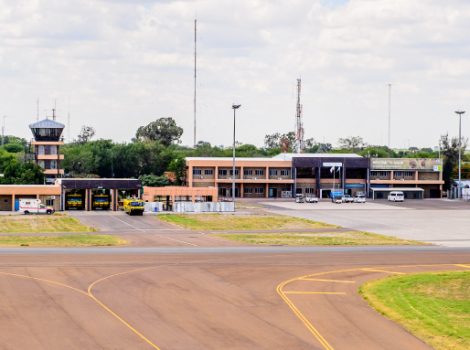
15 May 2025
Each African country has its own economic advantages. These should be embraced rather than trying to focus on collective development, writes Shirley Yu.
History has consistently demonstrated that the trajectory of nations is not determined by formulaic prescriptions, but by the alignment of demographic strength and the gift of geography. Africa’s mosaic of states have vastly different resources and geographical circumstances. Such diversity demands strategic differentiation in development models and timeframes. In an era of Africa seeking a collective continental agenda, this principle is worth remembering.
The post-colonial era has seen recurring patterns of developmental homogeneity imposed upon Africa’s diverse nations. International financial institutions, guided by the theoretical abstractions of Western economists rather than the concrete realities of African circumstances, have prescribed standardised remedies across non-standardised environments. This approach reflects not merely a perception blind spot but a fundamental misunderstanding of how nations ascend the ladder of prosperity.
The historical record is unambiguous: national development has never occurred through adherence to universal formulas. Successful states have achieved prosperity by recognising their unique advantages and constructing economic systems that leverage their distinctive assets. The Asian tigers did not replicate Western models or one another’s approaches.
They adapted conducive elements to their unique circumstances. Singapore’s transformation under Lee Kuan Yew succeeded precisely because it distinguished itself from neighbouring markets rather than mimicking them by embracing global capitalism and making use of its position on the Malacca Straits – a key global shipping lane.
Africa’s development must now be reconceptualised along the lines of strategic differentiation. Three broad pathways present themselves, each corresponding to a nation’s particular endowments, which can be adapted to suit the individual country.
Resource-rich nations
For mineral-rich nations, such as the Democratic Republic of Congo with its estimated £18 trillion in untapped critical mineral resources, Botswana with its diamond wealth, or Nigeria with its petroleum reserves, the Gulf states offer an instructive parallel.
The United Arab Emirates has reinvested its oil revenue into building a forward-looking economy through its sovereign wealth funds. These institutions now manage over £1 trillion in assets, 60% of which is invested in domestic public infrastructure. Saudi Arabia’s Vision 2030 represents an ambitious blueprint for resource-generated economic transformation on a scale surpassing its Gulf neighbours through a renewable energy transition and an innovation-based economy.
The possession of natural resources does not need to result in the “resource curse” that has plagued many African states. When income from these resources is managed strategically, natural endowments can become catalysts for broader economic prosperity.
Botswana stands as the continent’s compelling case study. Since discovering vast diamond deposits shortly after independence, this landlocked nation has transformed itself from one of the world’s poorest countries into a stable middle-income economy.
The secret to Botswana’s success lies not in the gems themselves, but in the hands that manage them. The government negotiated equitable partnerships with mining companies, established sovereign wealth funds to preserve wealth for future generations, and crucially, invested the proceeds in public infrastructure, education, and healthcare.
Botswana isn’t without challenges. Income inequality persists, economic diversification remains incomplete, and the diamond dependence continues.
Yet, its trajectory offers a powerful template for how resource wealth, when properly managed, can catalyse genuine development rather than trigger decline.
Sea faring nations
For coastal nations, geography is their primary advantage. Integrating into global value chains through specialised economic zones offers a prototype for industrialisation and economic transformation. These zones have special customs policies, logistics, and regulatory frameworks designed for global competition. The special economic zone model pioneered by China and the Gulf states offers significant promise. Zoning allows nations to test policies before opening them up to the country at large. Shenzhen’s transformation from a fishing village to a global manufacturing and technology centre in just over two decades demonstrates the potential of such zones. In 1980, Shenzhen’s GDP stood at approximately £17 million. By 2024, it had surpassed £384 billion.
Africa has begun experimenting with this approach, though with varying degrees of commitment. The Djibouti International Free Trade Zone has attracted £2.6 billion in investment since its establishment. Djibouti stands at the nexus of the Red Sea and the Gulf of Aden. It is one of the world’s most critical maritime chokepoints. Approximately 30% of global shipping transits pass through this waterway. This location has been transformed into a decisive advantage through deliberate policy architecture.
The Doraleh Container Terminal and Multipurpose Port has remote-controlled cranes that rival the facilities in Rotterdam or Singapore. In 2018, the government assumed direct operational control.
The adjacent Djibouti International Free Trade Zone will be Africa’s largest when fully developed. The first phase, operational since 2018, has already attracted over one hundred firms and is expected to create 12,000 jobs.
The policy framework mandates zero taxation for the first decade, expedited customs procedures, and the elimination of currency restrictions. These policies are aimed at reducing the perception of risk that has historically deterred capital investment in the region.
The emerging Djibouti International Business District completes this tripartite development strategy. It will ensure value-add to primary and secondary materials that pass through the port. The district is supported by advanced data infrastructure and renewable energy systems making it ready for the 21st century.
Between 2014 and 2019, Djibouti’s GDP growth averaged 6.7% a year, making it one of Africa’s fastest growing economies. Foreign direct investment has increased from 5.7% of GDP in 2010 to 10.8 %in 2022.
What makes the Djibouti particularly instructive is that these outcomes have been achieved without significant extractive industries or agricultural upgrades. The nation has leveraged its natural advantage – geographical position – through sophisticated policy formulation and strategic vision.
Resource-poor nations
For natural resource-poor nations such as Rwanda, Burundi, and Malawi, talent is the best resource. Digital and technology transformation offers the most promising path forward. Rwanda is establishing itself as an Africa’s fastest growing economy through investments in digital infrastructure and education.
In 2023, Rwanda’s ICT sector contributed 35% of its 8.2% GDP growth, an all-time high. President Paul Kagame articulated this strategy succinctly:
“Real wealth is in the head, not in the ground. Building a competitive, modern economy requires smart investments in human capital and productive knowledge.”
This approach has attracted significant investment, with technology firms including Africa Data Centres, Ansys, and Carnegie Mellon University establishing regional headquarters in Kigali rather than traditional centres such as Nairobi or Johannesburg.
Development has never proceeded uniformly across all sectors and regions simultaneously. Growth nodes emerge and gradually extend their network effect, provided that governments facilitate substantial investments in public goods such as education, infrastructure, and effective governance.
The African Continental Free Trade Area (AfCFTA) does not contradict the idea of differentiated national development strategies. By reducing tariffs across the continent, the agreement enables specialisation according to comparative advantage while ensuring that the benefits of such specialisation are widely distributed.
The challenge for African leadership is to recognise that continental solidarity need not imply developmental uniformity. True solidarity emerges not from identical approaches but from complementary strategies that create an integrated yet diversified continental economy.
The pursuit of equitable development across Africa’s 54 nations, while noble in theory, may ultimately hinder the continent’s prosperity. The prevailing development orthodoxy emphasises leaving no country behind—an approach that, paradoxically, risks leaving all countries in perpetual underdevelopment.
Africa needs economic pioneers – nations that can rapidly accumulate wealth and expertise through specialised development strategies. Mineral-rich countries leveraging their natural endowments through sovereign wealth funds, coastal nations establishing manufacturing hubs through special economic zones, and resource-poor countries building digital and AI economies represent Africa’s vanguard in this differentiated approach.
These first movers will generate spillover effects that benefit their neighbours through trade, investment and knowledge transfer. More importantly, their success will create models that others can emulate.
There is wisdom in Chinese reformer Deng Xiaoping’s pragmatic dictum: “Let some people get rich first.” Africa would be well-served to adopt this principle at the continental level.
Allowing some African countries to get rich first is not just pragmatic economics. It is the surest path to eventual prosperity for all.
About the author
Shirley Ze Yu is Director of the China-Africa Initiative at the Firoz Lalji Institute for Africa at LSE, and senior practitioner fellow at the Ash Center, Harvard Kennedy School.
Source: https://rb.gy/6swwsr



